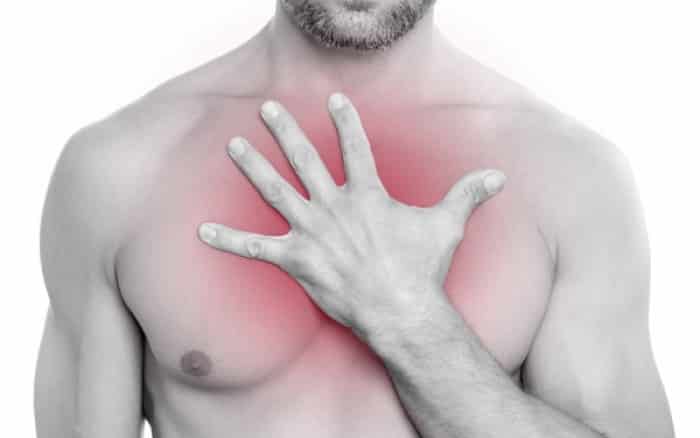
Stress and Anxiety | Cause, symptoms, prevention and treatment
Stress and anxiety can affect us both mentally and physically. Stress comes in many different forms and over time can cause one to feel anxiety and turmoil in both the brain and body. Anxiety is often described as a feeling of deep turmoil in the body and a feeling that one does not extend to everyday life.
Of course, some stress is perfectly normal. It can be motivating to get us to study for exams or to apply for a job. But if stress and anxiety begin to affect your daily life - in the form of awkwardness and lack of energy - then this may be a sign of a more serious depression or the like. If you are constantly anxious, avoid social settings and situations, or experience that you are sad and bored for a long time, we strongly recommend that you contact your GP for a review of possible stress and anxiety relief measures.
Follow and like us too Our Facebook page og Our YouTube channel for free, daily health updates.
In the article, we will review:
- Symptoms of stress and anxiety
- Causes of high stress levels
- When should you seek help
- Treatment of stress and anxiety
- Prevention
In this article you will learn more about stress and anxiety, as well as various causes, symptoms and possible treatments at this clinical presentation.
Are you wondering something or do you want more of such professional refills? Follow us on our Facebook page «Vondt.net - We relieve your pain»Or Our Youtube channel (opens in new link) for daily good advice and useful health information.
Symptoms of Stress and Anxiety: What Does Stress Feel Like?

Stress and anxiety can cause both physical and mental symptoms in the affected person. These include:
Muscle Tensions, Headaches and Dizziness

Due to the fact that stress can affect us physically - as well as mentally - this also means that you can experience that muscles in different parts of the body, but most often in the neck and upper back, tense and become painful. The term is often called stress neck and is a known phenomenon in which the body turmoil manifests itself physically in the muscles, tendons and joints, leading to increased sensitivity which can thus contribute to neck headache and tension headache.
This can also cause cervicogenic dizziness - that is, that you are affected by transient mild dizziness attacks due to the malfunction in the neck and upper back.
Read more: - What You Should Know About Stress Talking
Stomach, Diarrhea and Changes in the Apetite

Stress can lead to stomach ache, poor stomach and changes in appetite. Anxiety and stress help to trigger what we call the "fight or flight" response in the body. A defensive reaction where the body prepares to fight for life. Thus, the blood circulation is focused on the most important organs, muscles and brain - but this also leads to certain bodily functions, such as the breakdown of food, being put on low priority.
When the body is in this mode, the appetite and food intake are also reduced, because survival is at the top of the agenda. Of course, it is not particularly healthy to be so stressed that you get stomach cramps, diarrhea and reduced appetite - but it often affects many before major events in life; such as exams, weddings and the like.
Read more: - This Common Heartburn Medication Can Cause Kidney Damage
Sleep problems and Fatigue

Restlessness at night and difficulty falling asleep are also some common symptoms that accompany stress and anxiety. Of course, it is also true that if one does not sleep well then one does not wake up refreshed either. The consequence of this is that you have lower energy levels throughout the day and that you can feel exhausted before the day is over.
A good suggestion for better sleep hygiene is to lie down and get up at regular times - every day. As well as avoid common sleep problems triggers such as alcohol, caffeine and the use of a smart phone in bed.
Palpitations, Sweating, Shaking and Frequent Breathing

As mentioned earlier in the article, stress often causes the body to go into a "fight or flight" response. In such a situation, the heart will start beating faster to contribute enough blood circulation to the muscles, brain and the most important organs in the body. This can be experienced as palpitations - that the heart beats both heavier and more frequently than when you are not stressed.
With increased heartbeat, we need more oxygen to oxygenate the blood that is being circulated around the body. Therefore, we also breathe heavier and more frequently. Due to overactivity in the autonomic nervous system, such a reaction will also mean that the sweat glands become more active to keep the body temperature down - and that the adrenaline in circulation can cause you to almost shake.
Read more: - 3 Breathing Techniques Against Stress
Other Mental and Emotional Symptoms

Stress and anxiety can cause mental and emotional responses in addition to the physical ones - of course. These may include:
- A feeling of dying soon
- Irrational outbursts of anger
- Difficulty concentrating
- Panic and nervousness
- uneasiness
Particularly people suffering from stress and anxiety over extended periods of time may experience negative health consequences. Those with elevated stress and anxiety levels have a higher chance of developing heart disease, high blood pressure, diabetes and depression.
Also read: - How To Recognize Signs And Symptoms Of Stroke!
Causes and Diagnoses: What Causes Stress and Anxiety?

For most people, stress and anxiety are something that comes and goes. Often they are linked to special life situations or events. Some common causes include:
- Moving: Many people are generally uneasy about change - and what does greater change mean than moving to a new physical address with a new social network and new environment? For children and young people, this means a new school - which can be difficult at an already demanding age.
- Death or illness in the family or circle of friends: The fact that a friend or family member becomes seriously ill with a possible fatal outcome leads to extensive stress and emotional reactions. Some people react differently than others when it comes to such tragic deaths - and in many people such reactions can persist to varying degrees over several years.
- High pressure at work or school: We have all experienced the horror of an exam or deadline at work. Maybe you experienced several of the symptoms we mentioned earlier in the article just by thinking of holding a powerpoint presentation in front of the class or job?
- Medications: There are a number of medications and medicines that unfortunately cause increased anxiety and stimulate worsening stress levels in the body. These include, among other things, metabolic drugs, diet pills and asthma medicines.
When to Seek Help
If you have regular depression and stress attacks, we strongly recommend that you discuss this with your GP immediately for a review. The doctor can help to rule out that these are more serious diagnoses and then you can focus on measures that provide symptom relief and functional improvement. There are also free services you can call to talk to someone if you have difficulty - including Kirkens SOS on 22 40 00 40 (XNUMX-hour emergency telephone).
Also read: - 7 Symptoms of Fibromyalgia in Women
Treatment and Self-Action: What Relieves Stress and Anxiety?

There are a number of measures and treatments that can help lower the stress levels in your body. We especially recommend increased physical exercise, getting help with the causes of the problem and good dialogue with the GP. Among other things, stress relief measures include the following:
- Limited content of caffeine and alcohol
- A healthy and balanced diet with lots of vegetables
- Physical treatment of muscles and joints
- Good conversation with a friend or acquaintance
- Good sleep hygiene
- Mapping your stress triggers
- Meditation
- Yoga
- Increased physical exercise
- Practice breathing techniques
Utilizing alcohol and drugs to relieve stress is not particularly smart in the long run and can have negative consequences. Among other things, it can cause alcohol abuse which can aggravate both the stress levels and the anxiety you are experiencing.
Summarizeringing
Stress must be actively treated and prevented - with things that you enjoy doing. This can be yoga with friends or going for a walk in the peace of the forest all alone - but it is very important that you set aside time for such stress-relieving measures for yourself. If you are suffering from persistent high stress and anxiety then we strongly recommend that you contact your doctor for further examination.
Do you have questions about the article or do you need any more tips? Ask us directly via our facebook page or via the comment box below.
Recommended self help
Reusable Gel Combination Gasket (Heat & Cold Gasket)
Heat can increase blood circulation to tight and sore muscles - but in other situations, with more acute pain, cooling is recommended, as it reduces the transmission of pain signals. Due to the fact that these can also be used as a cold pack to calm down swelling, we recommend these.
Read more here (opens in new window): Reusable Gel Combination Gasket (Heat & Cold Gasket)
Visit if necessary «Your Health Store»To see more good products for self-treatment
Click the image or link above to open Your Health Store in a new window.
NEXT PAGE: - This is how you can know if you have a blood clot
Click on the image above to proceed to the next page. Otherwise, follow us on social media for daily updates with free health knowledge.
 Follow Vondt.net on YOUTUBE
Follow Vondt.net on YOUTUBE
(Follow and comment if you want us to make a video with specific exercises or elaborations for exactly YOUR issues)
 Follow Vondt.net on FACEBOOK
Follow Vondt.net on FACEBOOK
(We try to respond to all messages and questions within 24-48 hours. We can also help you interpret MRI responses and the like.)
Frequently asked questions about Stress and Anxiety
Feel free to ask us a question in the comments section below or via our social media.











Leave a reply
Want to join the discussion?Feel free to Contribute!